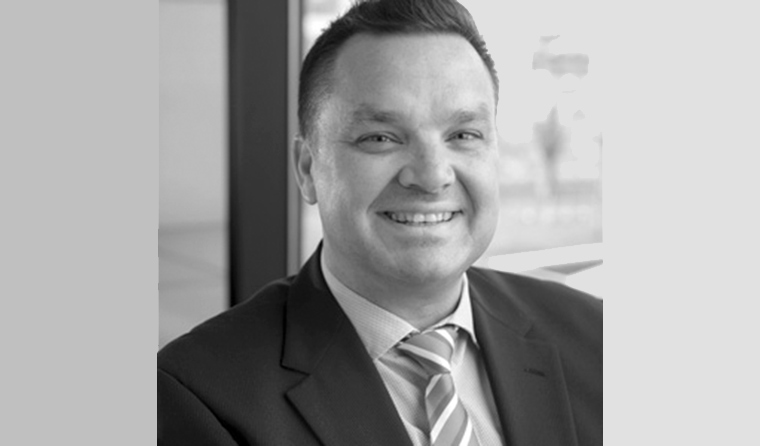News
Helping PTSD patients stop ‘enduring symptoms in silence’
PTSD Awareness Day aims to reduce burden and encourage support from healthcare professionals and advocacy groups.
 People experiencing PTSD may present with a multitude of symptoms.
People experiencing PTSD may present with a multitude of symptoms.
Post-traumatic stress disorder (PTSD) can be triggered by many experiences – family violence, sexual abuse, intergenerational trauma, refugee status, serving in the military, working in emergency response, and more.
The Australian Institute of Health and Welfare reports that nearly one in five serving Australian Defence Force (ADF) personnel seek help for stress-related issues and, compared with non-serving Australians, are 1.8 times as likely to experience PTSD.
The Royal Commission into Institutional Responses to Child Sexual Abuse has found that survivors of abuse are likely to experience mental health issues, substance abuse, interpersonal relationship challenges, but may not disclose their experiences and hold onto the trauma – sometimes for years or even decades.
Dr Phil Parker is a GP with a special interest in PTSD who served as a uniformed doctor with the ADF for nearly 30 years. In his experience, the triggers of PTSD can ‘vary significantly’.
‘[They] are often related to the individual’s traumatic past,’ he told newsGP.
‘Examples of triggers can include certain sounds, sights, locations and even specific dates. The effect of the triggers can be amplified when the individual feels socially isolated, under stress, sleep deprived, or affected by alcohol or other substances.’
Given the many forms in which trauma can present, and the diversity of patients seen in general practice, Dr Parker believes GPs are ideally placed to support patients experiencing PTSD.
‘As primary health providers, GPs have more frequent exposure to patients, allowing them to gain a better understanding of the issues that affect patients and to recognise the signs of PTSD,’ he said.
‘Some of the signs can include prolonged periods of irritability, anger, sleep disturbances, and limited social interactions.’
Dr Parker emphasises that these types of presentations should warrant consideration of an underlying cause – such as previous exposure to trauma – and the importance of trauma-informed care and broaching the topic with sensitivity.
‘GPs [could] ask if there is anything in the patient’s past that potentially has a significant effect upon their life functioning,’ he said.
 Dr Phil Parker believes it is important for GPs to be aware of the PTSD resources available to provide effective avenues for their patients to seek specialised treatment.
Dr Phil Parker believes it is important for GPs to be aware of the PTSD resources available to provide effective avenues for their patients to seek specialised treatment.
In Australia, the prevalence of PTSD is around 5% of the population, with many people quietly experiencing symptoms, according to Dr Parker. This silence, Dr Parker said, can play a significant role in people being reluctant or unsure of how to seek help, which is where the GP’s role is fundamental.
‘Patients may be diagnosed with depression or anxiety, or present with unexplained symptoms such as constipation, headaches, shortness of breath, restless legs,’ he said.
‘It is important that GPs understand that they maintain a central role in the management of these patients, and best practice management of PTSD involves a coordinated team approach, including clinical and social support.
‘GPs have the ability to review the symptoms, diagnose PTSD and make an assessment about the severity of the condition and safety of the patient.’
Dr Parker also believes it is important GPs are aware of the resources available to provide effective avenues to specialised treatment, including assessment of vocational functioning and substance misuse.
‘Clinical support should include referral for trauma-focused therapies, consideration of psychiatric support for complex patients and regular review. It is also important to ensure that the patient has regular social support,’ he said.
The PTSD Awareness Day campaign aims to bring together healthcare professionals and patients, with a shared objective of reducing the burden and stigma that may be attached to diagnosis of PTSD.
‘There are many [people who experience PTSD] who endure symptoms in silence,’ Dr Parker said.
‘Many are not sure how to seek help, many are reluctant to deal with their memories and many feel worried about the stigma of being labelled with PTSD.
‘PTSD Awareness Day educates everyday Australians about the condition and encourages individuals to seek help.’
RACGP resources
abuse post-traumatic stress disorder PTSD Awareness Day trauma
newsGP weekly poll
Within general practice, do you think there are barriers to providing flu vaccinations? If so, what are they?